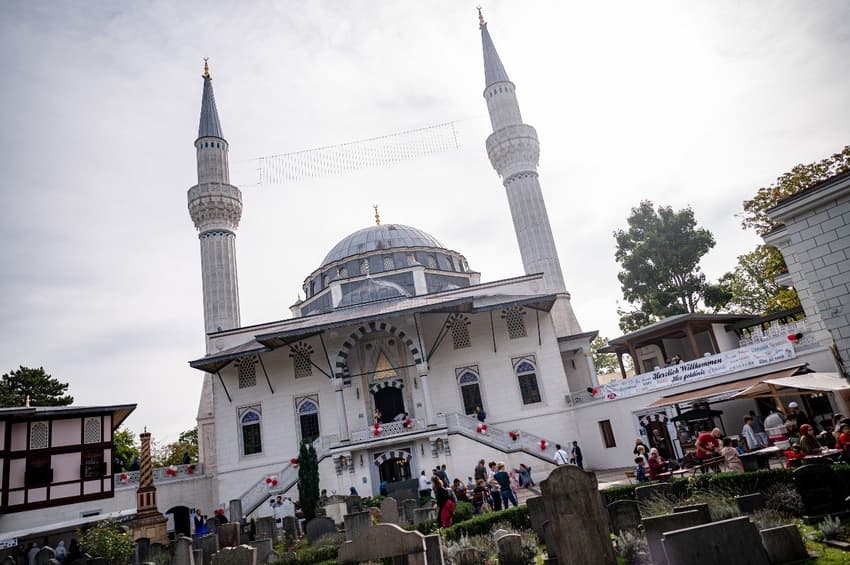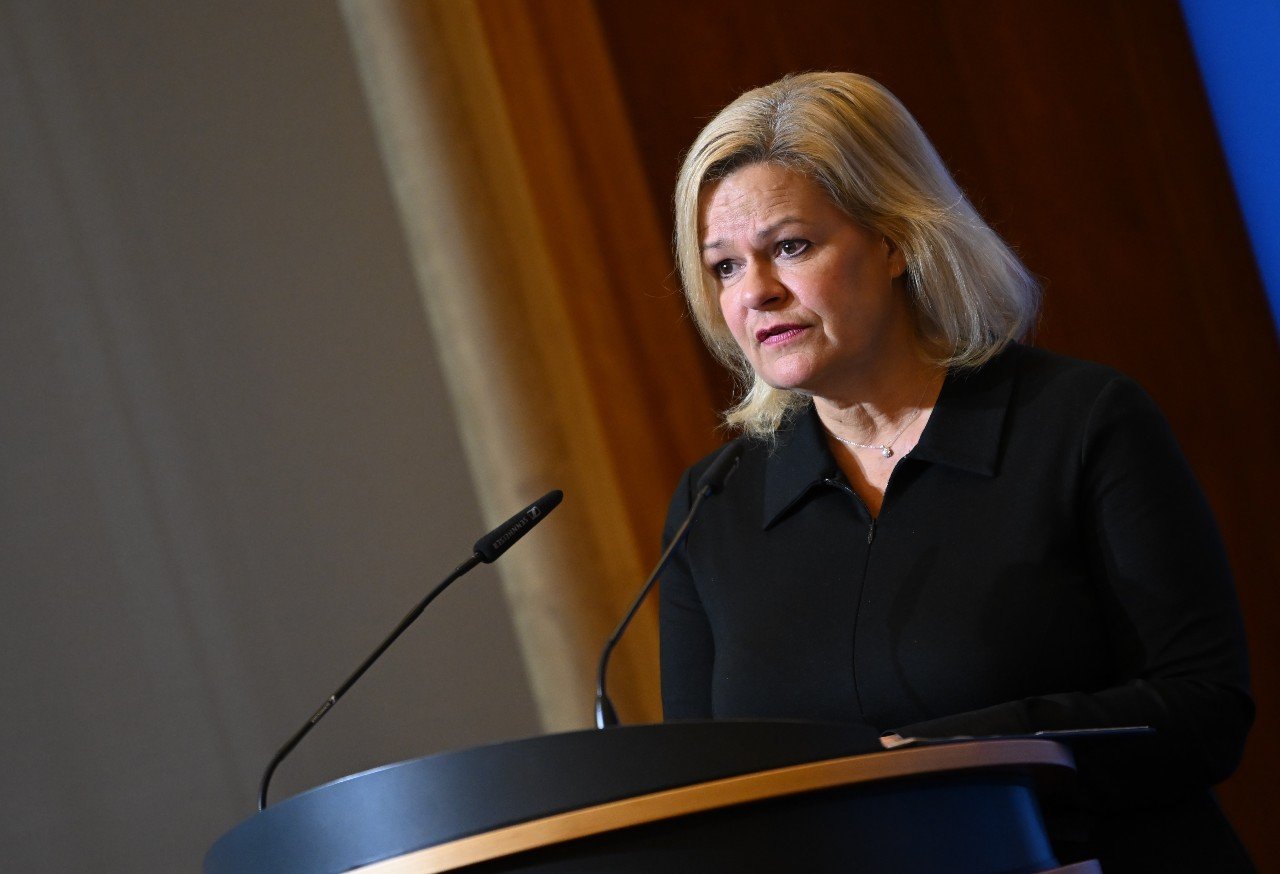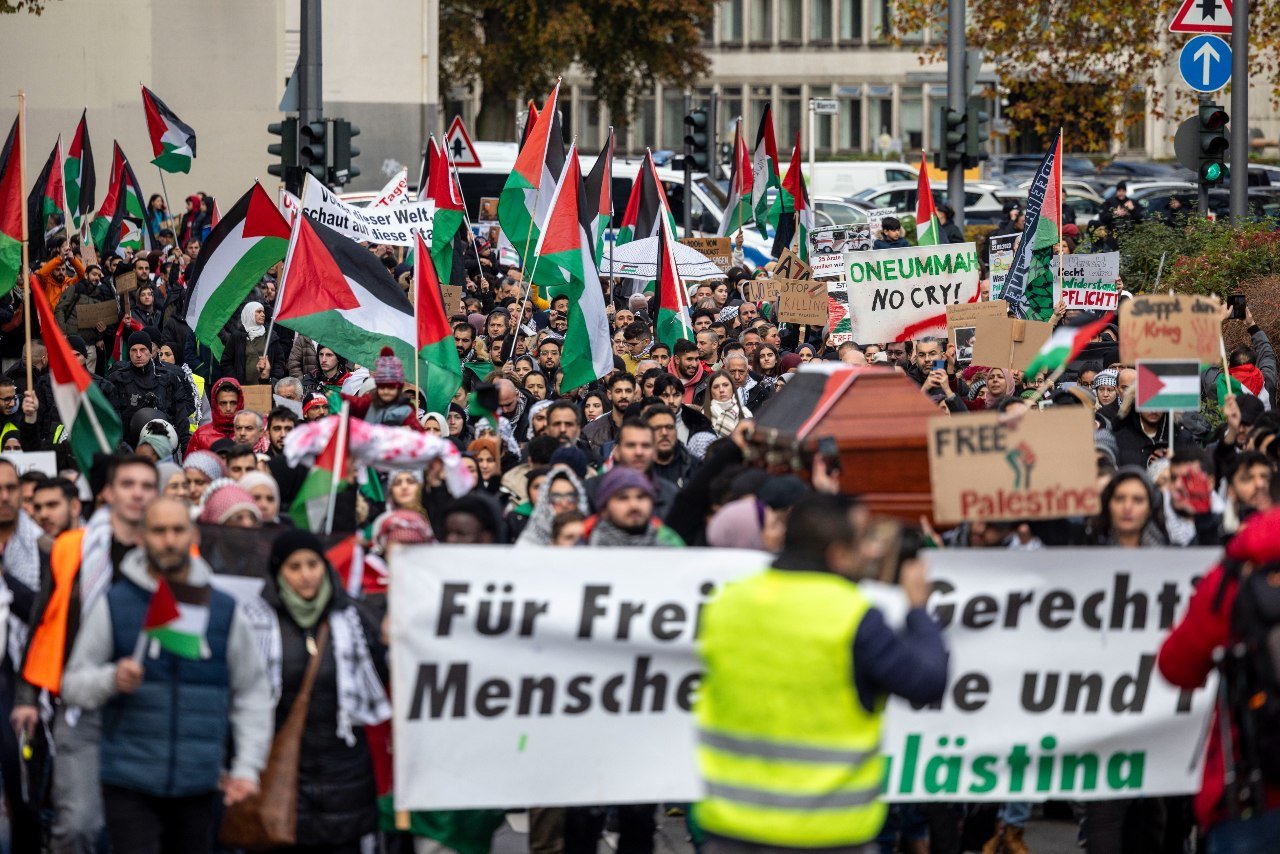What is Germany's Islam conference and why is it controversial?

A two-day conference focussed on Germany's Muslim community is being held in Berlin - but this year there are some notable absences. Here's what you need to know about the event and why Islamic groups say they've been sidelined.
What's going on?
When Germany's Interior Ministry released the agenda for its annual Islam Conference this year, there appeared to be one notable exception: barely any Islamic groups were represented or involved in the discussions over the two-day event.
The speakers involved in the panel discussions at the conference primarily consist of German academics and government representatives. In contrast, only one representative of an Islamic association - the Maliki Community Alliance - will be featured on the the podium on the second day of the event.
"We see that an event is currently taking place that deals with anti-Semitism and anti-Muslim hostility and none of the major associations are on the podium or have been included in the event," Burhan Kesici, chairman of the Islamic Council, told German media outlet Tagesschau, adding that this year's event had bypassed Muslims almost entirely.
"There is always a requirement that Muslim associations should actively participate, but how can you do that if you are just a spectator, so to speak."
According to the government, invites were sent out to some Muslim groups to attend as audience members, along with representatives from Jewish groups, the Church, academia and civil society.
The German interior ministry is hosting an “Islam conference”. Notice anything about the guests? pic.twitter.com/tQJY1zZHrU
— James Jackson (@derJamesJackson) November 21, 2023
However, in light of tensions stoked by the Israel-Hamas war, some prominent Muslim groups were specifically excluded.
This includes Germany's Central Council of Muslims (ZRM), who stand accused of not condemning the attack on Israel clearly enough.
Speaking to RBB24, Aiman Mazyek, head of the Muslim Council, expressed surprise that the organisation was not invited, stating: "Exchange is needed right now."
"On the one hand, it is about condemning extremism like the Hamas terror on October 7th and, on the other hand, making it clear that the war in Gaza and the Israeli bombardment must not continue," Mazyek said. Violence from Israel would only fuel an increase in terrorism, he said.
Nevertheless, the organisation says it will continue its work of "moderation" and tackling "dehumanisation", including anti-Semitism, regardless of whether it participates in the conference.
What is the conference and why is it controversial?
Though the Islam conference may sound like a community-led initiative, it was actually founded by former Interior Minister Wolfgang Schäuble, of the centre-right Christian Democrats (CDU) back in 2006 as a security project aimed at fighting terrorism.
In the past 17 years, however, the event has metamorphosed significantly and recent topics have included religious education in schools, pastoral care in prisons, Islamic welfare and the problem of state-appointed Imams. The topic of Imams was the focus of last year's event, which was the first conference organised in this legislative period.
READ ALSO: Eight things to know about Islam in Germany
This year, however, the Interior Ministry was sharply criticised for selecting Islamophobia as a topic of discussion. According to Tagesschau, one Dutch immigration researcher, Ruud Koopmans, wrote a letter to the Ministry rejecting an invitation to sit on a panel related to anti-Muslim hate.
The audience of Germany’s interior ministry’s Islam conference today
Anything missing? 🧕 pic.twitter.com/SWI7gCp47x
— Riham Alkousaa (@RihamKousa) November 21, 2023
"We are currently not living in times in which anti-Muslim sentiment appears to be the central problem," he said, adding that the choice of topic was "unfortunate, or even inappropriate".
In light of the backlash, the Ministry hastily added anti-Semitism onto the agenda in order to acknowledge the recent rise in anti-Semitic hate.
Mathias Rohe, who coordinated the Independent Expert Group on Islamophobia, said he understood the addition but was concerned about Muslim and Jewish groups being played off against each other.
According to the latest statistics, both anti-Semitic and Islamophobic incidents have risen sharply in the aftermath of the October 7th terrorist attacks by Hamas.
In 2023 alone, there have been dozens of attacks on mosques, including reports of faeces and pork being delivered to the religious centres.
Of more than 81 attacks, more than half were carried out since October 7th.
"Many Muslims in our country are unsettled, afraid to speak out at all, and feel intimidated by the debate," said head of the Muslim Council Aiman Mazyek, adding that people who had lost loved ones in Gaza should be allowed to express their feelings without being labelled supporters of Hamas.
What has the government been saying?
Speaking on broadcaster ARD on Tuesday, Faeser became the latest politician to urge Muslim groups in Germany to explicitly condemn the deadly Hamas attacks and to voice solidarity with Israel.
"I expect the Muslim organisations to clearly position themselves and uphold their responsibilities in society," Faeser said.
The groups need to "clearly condemn" the attack by Hamas and not just with a "yes, but", she said.
"It must be very clear. We stand by Israel's side," added Faeser.
Some Muslim groups have indeed "lived up to their responsibilities", she said. "Some have not." The voices "defending our values" must get louder, said the minister.
READ ALSO: German police raid scores of properties in fight against anti-Semitism
However, in comments made at the Islam conference, Faeser said claims of anti-Semitism should not be used to stoke divisions.
"Those who are now creating a mood against Muslims under the pretext of fighting anti-Semitism want to divide and not unite us," she said.

Interior Minister Nancy Faeser (SPD) speaks at the Islamic Conference on Tuesday. Photo: picture alliance/dpa | Britta Pedersen
Faeser's comments come after weeks of rising tensions in the wake of the Israel-Hamas war and increasing suspicion towards the some 5.5 million Muslims who live in Germany.
In the October 7th terrorist attacks, Hamas gunmen killed at least 1,200 people, mostly civilians, and took more than 120 hostages with them into Gaza, the majority of whom have not been released.
In retaliation, Israel launched a brutal bombing campaign and ground offensive in Gaza in which more than 13,300 Palestinians have died so far, including at least 5,600 children, according to statistics from the Hamas-run health ministry that are deemed reliable by the UN.
With Israel carrying out attacks on hospitals in the Gaza Strip - which they have claimed are Hamas bases - and continuing to choke off supplies of water, food and medicine in the region, the humanitarian crisis in the area has also worsened dramatically in recent weeks.
Germany's foreign population has been singled out several times as an alleged source of anti-Semitic hate and anti-Israel sentiment in the country.
This led to the government aiming to tighten up rules around anti-Semitism in its forthcoming reform of dual nationality and citizenship rules.
Speaking at the Islamic conference, Faeser said everyone in Germany had a special responsibility to protect Jewish life. "Anyone who becomes a citizenship of our country has to know what this means for them personally," she said.
READ ALSO: Could Germany strip citizenship rights from foreigners over anti-Semitism?
Why is anti-Semitism being treated as a 'foreign' problem?
In the early days of the Israel-Hamas war, German police moved to ban a number of planned protests in solidarity with Palestinians, including a Berlin demo organised by a Jewish group, "Jewish Voices for Just Peace in the Near East".
Other unofficial pro-Palestinian gatherings - and particularly those in areas with a high migrant population - were labelled "Hamas rallies" in the German press.
More recently, however, larger pro-Palestine demonstrations have been allowed to take place in many major German cities. These marches have mostly been peaceful, though there has also been violence and arrests over anti-Semitic acts.
In a recent visit by Turkish President Recep Tayyip Erdogan to Germany, the authoritarian leader clashed with Chancellor Olaf Scholz (SPD) after claiming that Israel was a "terror state" and Hamas were "liberators" fighting for their land.

People march in solidarity with Palestine in Wuppertal, North Rhine-Westphalia. Photo: picture alliance/dpa | Christoph Reichwein
This help to fuel existing perceptions that the Turkish community are the most fervently pro-Palestine within Germany.
Last month, Economics Minister Robert Habeck (Greens) recorded a viral video where he described the security of Israel as Germany's "Staatsräson", or state purpose, and also singled out migrant and Muslim groups to explicitly condemn the Hamas attacks.
READ ALSO: Vice chancellor calls for end of anti-Semitism in Germany in viral video
Politicians from the right-wing CDU have also blamed Muslim immigrants from Africa and the Near and Middle East for a rise in anti-Semitic attacks, describing these areas as breeding grounds for Jewish hate and labelling anti-Semitism an "imported" problem.
This is despite the fact that the vast majority of anti-Semitic attacks - including a recently thwarted plan by a radicalised 18 year old - are carried out by Germany's far-right.
Comments
See Also
What's going on?
When Germany's Interior Ministry released the agenda for its annual Islam Conference this year, there appeared to be one notable exception: barely any Islamic groups were represented or involved in the discussions over the two-day event.
The speakers involved in the panel discussions at the conference primarily consist of German academics and government representatives. In contrast, only one representative of an Islamic association - the Maliki Community Alliance - will be featured on the the podium on the second day of the event.
"We see that an event is currently taking place that deals with anti-Semitism and anti-Muslim hostility and none of the major associations are on the podium or have been included in the event," Burhan Kesici, chairman of the Islamic Council, told German media outlet Tagesschau, adding that this year's event had bypassed Muslims almost entirely.
"There is always a requirement that Muslim associations should actively participate, but how can you do that if you are just a spectator, so to speak."
According to the government, invites were sent out to some Muslim groups to attend as audience members, along with representatives from Jewish groups, the Church, academia and civil society.
The German interior ministry is hosting an “Islam conference”. Notice anything about the guests? pic.twitter.com/tQJY1zZHrU
— James Jackson (@derJamesJackson) November 21, 2023
However, in light of tensions stoked by the Israel-Hamas war, some prominent Muslim groups were specifically excluded.
This includes Germany's Central Council of Muslims (ZRM), who stand accused of not condemning the attack on Israel clearly enough.
Speaking to RBB24, Aiman Mazyek, head of the Muslim Council, expressed surprise that the organisation was not invited, stating: "Exchange is needed right now."
"On the one hand, it is about condemning extremism like the Hamas terror on October 7th and, on the other hand, making it clear that the war in Gaza and the Israeli bombardment must not continue," Mazyek said. Violence from Israel would only fuel an increase in terrorism, he said.
Nevertheless, the organisation says it will continue its work of "moderation" and tackling "dehumanisation", including anti-Semitism, regardless of whether it participates in the conference.
What is the conference and why is it controversial?
Though the Islam conference may sound like a community-led initiative, it was actually founded by former Interior Minister Wolfgang Schäuble, of the centre-right Christian Democrats (CDU) back in 2006 as a security project aimed at fighting terrorism.
In the past 17 years, however, the event has metamorphosed significantly and recent topics have included religious education in schools, pastoral care in prisons, Islamic welfare and the problem of state-appointed Imams. The topic of Imams was the focus of last year's event, which was the first conference organised in this legislative period.
READ ALSO: Eight things to know about Islam in Germany
This year, however, the Interior Ministry was sharply criticised for selecting Islamophobia as a topic of discussion. According to Tagesschau, one Dutch immigration researcher, Ruud Koopmans, wrote a letter to the Ministry rejecting an invitation to sit on a panel related to anti-Muslim hate.
The audience of Germany’s interior ministry’s Islam conference today
— Riham Alkousaa (@RihamKousa) November 21, 2023
Anything missing? 🧕 pic.twitter.com/SWI7gCp47x
"We are currently not living in times in which anti-Muslim sentiment appears to be the central problem," he said, adding that the choice of topic was "unfortunate, or even inappropriate".
In light of the backlash, the Ministry hastily added anti-Semitism onto the agenda in order to acknowledge the recent rise in anti-Semitic hate.
Mathias Rohe, who coordinated the Independent Expert Group on Islamophobia, said he understood the addition but was concerned about Muslim and Jewish groups being played off against each other.
According to the latest statistics, both anti-Semitic and Islamophobic incidents have risen sharply in the aftermath of the October 7th terrorist attacks by Hamas.
In 2023 alone, there have been dozens of attacks on mosques, including reports of faeces and pork being delivered to the religious centres.
Of more than 81 attacks, more than half were carried out since October 7th.
"Many Muslims in our country are unsettled, afraid to speak out at all, and feel intimidated by the debate," said head of the Muslim Council Aiman Mazyek, adding that people who had lost loved ones in Gaza should be allowed to express their feelings without being labelled supporters of Hamas.
What has the government been saying?
Speaking on broadcaster ARD on Tuesday, Faeser became the latest politician to urge Muslim groups in Germany to explicitly condemn the deadly Hamas attacks and to voice solidarity with Israel.
"I expect the Muslim organisations to clearly position themselves and uphold their responsibilities in society," Faeser said.
The groups need to "clearly condemn" the attack by Hamas and not just with a "yes, but", she said.
"It must be very clear. We stand by Israel's side," added Faeser.
Some Muslim groups have indeed "lived up to their responsibilities", she said. "Some have not." The voices "defending our values" must get louder, said the minister.
READ ALSO: German police raid scores of properties in fight against anti-Semitism
However, in comments made at the Islam conference, Faeser said claims of anti-Semitism should not be used to stoke divisions.
"Those who are now creating a mood against Muslims under the pretext of fighting anti-Semitism want to divide and not unite us," she said.

Faeser's comments come after weeks of rising tensions in the wake of the Israel-Hamas war and increasing suspicion towards the some 5.5 million Muslims who live in Germany.
In the October 7th terrorist attacks, Hamas gunmen killed at least 1,200 people, mostly civilians, and took more than 120 hostages with them into Gaza, the majority of whom have not been released.
In retaliation, Israel launched a brutal bombing campaign and ground offensive in Gaza in which more than 13,300 Palestinians have died so far, including at least 5,600 children, according to statistics from the Hamas-run health ministry that are deemed reliable by the UN.
With Israel carrying out attacks on hospitals in the Gaza Strip - which they have claimed are Hamas bases - and continuing to choke off supplies of water, food and medicine in the region, the humanitarian crisis in the area has also worsened dramatically in recent weeks.
Germany's foreign population has been singled out several times as an alleged source of anti-Semitic hate and anti-Israel sentiment in the country.
This led to the government aiming to tighten up rules around anti-Semitism in its forthcoming reform of dual nationality and citizenship rules.
Speaking at the Islamic conference, Faeser said everyone in Germany had a special responsibility to protect Jewish life. "Anyone who becomes a citizenship of our country has to know what this means for them personally," she said.
READ ALSO: Could Germany strip citizenship rights from foreigners over anti-Semitism?
Why is anti-Semitism being treated as a 'foreign' problem?
In the early days of the Israel-Hamas war, German police moved to ban a number of planned protests in solidarity with Palestinians, including a Berlin demo organised by a Jewish group, "Jewish Voices for Just Peace in the Near East".
Other unofficial pro-Palestinian gatherings - and particularly those in areas with a high migrant population - were labelled "Hamas rallies" in the German press.
More recently, however, larger pro-Palestine demonstrations have been allowed to take place in many major German cities. These marches have mostly been peaceful, though there has also been violence and arrests over anti-Semitic acts.
In a recent visit by Turkish President Recep Tayyip Erdogan to Germany, the authoritarian leader clashed with Chancellor Olaf Scholz (SPD) after claiming that Israel was a "terror state" and Hamas were "liberators" fighting for their land.

This help to fuel existing perceptions that the Turkish community are the most fervently pro-Palestine within Germany.
Last month, Economics Minister Robert Habeck (Greens) recorded a viral video where he described the security of Israel as Germany's "Staatsräson", or state purpose, and also singled out migrant and Muslim groups to explicitly condemn the Hamas attacks.
READ ALSO: Vice chancellor calls for end of anti-Semitism in Germany in viral video
Politicians from the right-wing CDU have also blamed Muslim immigrants from Africa and the Near and Middle East for a rise in anti-Semitic attacks, describing these areas as breeding grounds for Jewish hate and labelling anti-Semitism an "imported" problem.
This is despite the fact that the vast majority of anti-Semitic attacks - including a recently thwarted plan by a radicalised 18 year old - are carried out by Germany's far-right.
Join the conversation in our comments section below. Share your own views and experience and if you have a question or suggestion for our journalists then email us at [email protected].
Please keep comments civil, constructive and on topic – and make sure to read our terms of use before getting involved.
Please log in here to leave a comment.